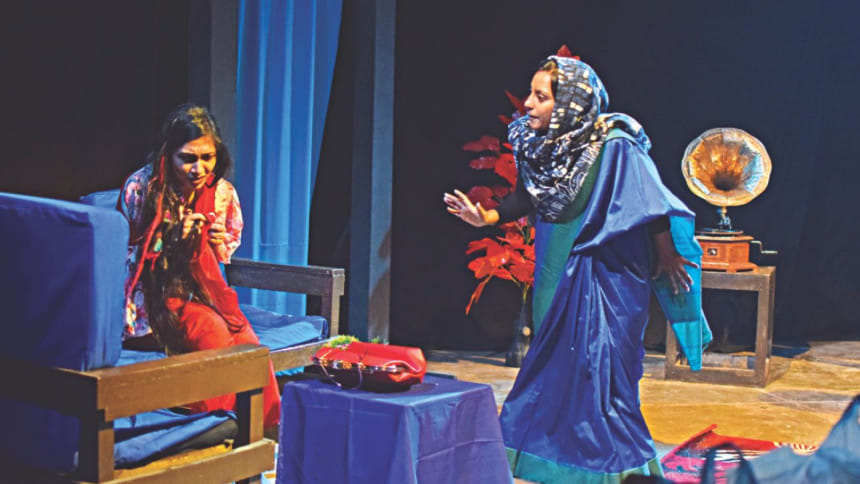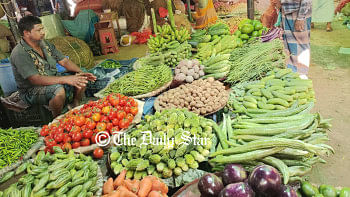A Successful Showcase of the Glory of Theatre Dhaka University

The eight day long Dhaka University Central Annual Theatre Festival ended on Monday amidst celebration and enthusiasm at Teacher-Student Centre at the Dhaka University campus. Vice Chancellor of the university Dr Md. Akhtaruzzaman inaugurated the festival on 11th December. Hon’ble Cultural Affairs minister Asaduzzaman Noor was present as the chief guest at the ceremony, along with DU Pro-VC (education) Dr Nasreen Ahmad, Arts Faculty Dean Professor Dr Abu Md Delwar Hossain and A. K. M. Shaheed Reza, Chairman, Mercantile Bank Ltd Theatre and Performance Studies Department Chairman Ahmedul Kabir chaired the sessions. The festival featured seventeen shows acted and directed by final year students of the respected department. Among all the plays, four were written by foreign playwrights and the rest thirteen were written by eminent playwrights like Rabindranath Tagore, Kazi Nazrul Islam, Selim Al Deen, Syed Waliullah, Abduallah Al Mamun, Mumtazuddin Ahmed and many more. Some novels and short stories by Rabindranath Tagore, Ahmed Sofa, Akhteruzzaman Elias, and Syed Shamsul Haq were also dramatized by the students. An important portion of this event was the Lifetime Achievement Award segment, which was conferred on the thespian Aly Zaker for his significant contribution to Bangladeshi drama and theatre.
On the first day of the event, Syed Shamsul Haq's Nil Dongshon was staged at the TSC premises. The play was dramatized and directed by Moniruzzaman Ripon, which portrayed the interrogation of a young man during the liberation War of 1971, whom Pakistani army arrested mistaking him to be the great poet Kazi Nazrul Islam. On the second day, Ahmed Sofa's Moronbilash, directed by Riaz Tarek, took the audience by laughter and amusement. Even though this satire carried a deep meaning, the viewers seemed engaged trying to dig deep into the play. Plays like Ujane Mrittu, Ms. Juli, Khoron, Shilpi, Chuti and Mayeek Master were highly appreciated by the audience. One of the most important aims of this festival was to engage the youth with the native literature and arts; a goal that attendants claim to have been achieved successfully. Many younger students enlightened themselves by showing enthusiasm and active participation in the performances. Overall, it was an event of joyous festivity that truly showcased the glory of theatre.

 For all latest news, follow The Daily Star's Google News channel.
For all latest news, follow The Daily Star's Google News channel. 



Comments